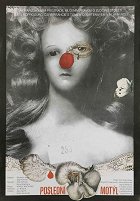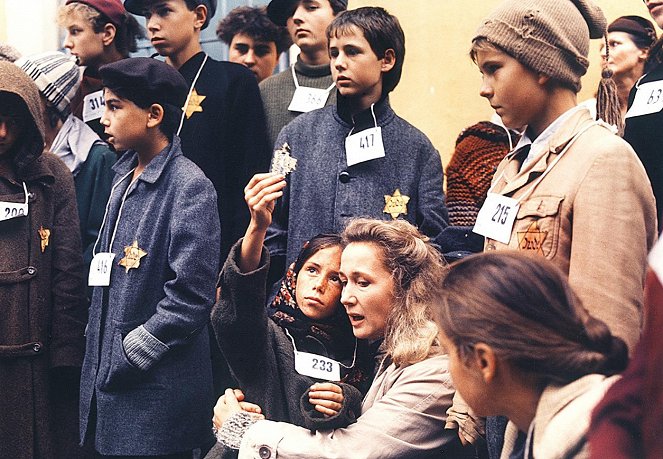Rendező:
Karel KachyňaOperatőr:
Jiří Krejčík ml.Szereplők:
Tom Courtenay, Brigitte Fossey, Freddie Jones, Milan Kňažko, Josef Kemr, Luděk Kopřiva, Pavel Bobek, Josef Laufer, Miloš Skalka, Rudolf Pellar, Jiří Lír (több)Tartalmak(1)
It is wartime - 1944, and Europe is brutalized by the horror of Nazi aggression and inhumanity. In the tiny Czech village of Terezin, the Nazis plan a propaganda coup to reshape the international opinion. In a master scheme to show a caring face of Nazism, Hitler has given the village to Jewish settlers as a place where they can live in freedom, reassuring a Red Cross delegation - and the world - of their peaceful intentions towards Jews. To provide a convincing "show," the Nazis have plucked the great French mime, Antoine Moreau (Tom Courtenay), from his waning career and ordered him to put on the greatest show of his life. The Reich spares no expense in providing the finest sets, orchestra and costumes. In return he will receive a generous fee and guaranteed return to Paris. But Antoine becomes driven with the need to tell the world the truth, regardless of personal risk. Although in mime he knows his lips must be sealed, now, as never before, his voice must be heard. (forgalmazó hivatalos szövege)
(több)Recenziók (2)
The scene that I liked the most and that "spoke" to me the most was the one where Courtenay plays to the people who have to transport, and Kemr accompanies him on the violin; that would be the scene where a tear fell and I understood why The Last Butterfly... otherwise the rest of the film was – admittedly, a description that doesn't really fit – peaceful. I've been to Terezín, so I even recognized some of the places (hopefully), I know what it was like there, we were taught about everything. This is just to illustrate the point, and it's a very good one.
()
I'm not quite sure why a film wasn't simply made about the staging of the children's opera Brundibár, which was actually performed in Terezín in the spring of 1944 for the International Red Cross. But if I agree to play the game with the French mime Antoine Moreau and his version of Hansel and Gretel, and if I won't be put off by the multitude of Czech actors in unspeakable template roles (from Molavcová to Štekl to Zedníček)... but instead let everything culminate in a final montage of stories with happy endings that never happened, I can accept The Last Butterfly as a valuable contribution to the subject of the Terezín ghetto.
()

